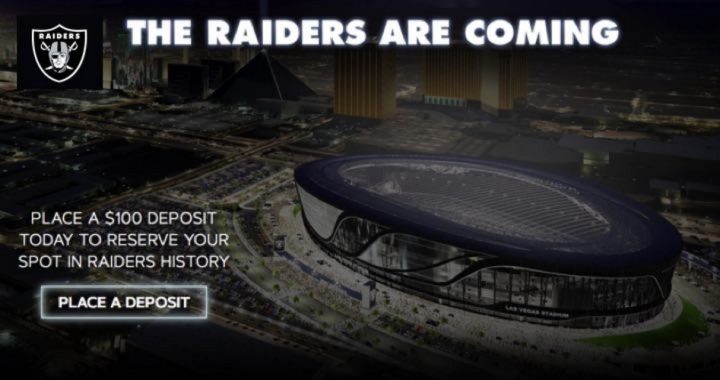
In response to the continuing NFL player protests during the playing of the National Anthem, President Donald Trump questioned whether the NFL should continue receiving generous tax breaks. Trump tweeted Tuesday, “Why is the NFL getting massive tax breaks while at the same time disrespecting our Anthem, Flag and Country? Change tax law!”
Critics were quick to challenge Trump, arguing that the NFL surrendered its tax-free status two years ago.
But White House spokesperson Sarah Sanders explained to reporters, “The federal tax law doesn’t apply here, but certainly we know that they receive tax subsidies on a variety of different levels.”
Indeed they do.
NFL owners regularly demand multi-million dollar subsidies from municipalities to build new stadiums, or remodel existing ones. Judith Grant Long, an urban planning professor at Harvard, stated that about 70 percent of the bill for these sports complexes are paid for by local taxpayers. Long also contends that 13 teams have garnered an actual profit off stadium subsidies, receiving even more money than what it cost to build the stadiums.
In Cleveland, on three major sports facilities, including one for the NFL Browns, the taxpayers paid 75 percent of the bill — about $825 million.
The response of the NFL owners to the player protests has been very lenient, despite it being league policy for the players to stand respectfully facing the flag during the playing of the “Star-Spangled Banner.” But there are indications that the spectacle of players kneeling during the National Anthem’s performance, which many fans consider an insult to the country, is now be taking a financial toll on the NFL.
A poll published this past weekend by the Winston Group revealed that fan support for the NFL dropped markedly from the last of August to the end of September. While the NFL has long reigned as the most popular professional sport, the Winston poll found that NFL football has now become “the least liked of top professional and college sports.”
Nearly a third of NFL fans are watching less of it, with half of them citing the protests. Direct TV has had a wave of cancellations for its “Sunday Ticket” NFL packages. Sunday Ticket allows fans to see games live from all over the country, not just in their region. Apparently, many fans, disgusted at the protests, no longer want to put money into the pockets of what they consider unpatriotic players — and owners.
Edward Morrissey, writing in The Week, said that many fans realize that they are being forced to pay for the stadiums where players are refusing to stand for the National Anthem: “Taxpayers provide publicly-funded stadiums to billionaire owners and millionaire players for almost every team in the league.”
The game has been pretty simple. If a city will not extract money from its citizens to pay for stadium upgrades, then the NFL team will just take its ball and go elsewhere.
After leaving Oakland for Las Vegas (whose taxpayers coughed up $750 million in public funds to “assist” the move), Oakland Raiders owner Mark Davis (son of Al Davis, who once owned the iconic NFL team) said, “My father used to say the greatness of the Raiders is in the future. This [the taxpayer subsidy] gives us the ability to achieve that.”
No doubt it does. Most business owners could achieve quite a bit of “greatness” with a $750 million “contribution” to their enterprise from the taxpayers. State and local politicians join in that “greatness,” by claiming that it was their “leadership” that brought a professional sports franchise to the city and state, or kept it there. Local politicians who choose to oppose such subsidies are then open to charges by political opponents of being “against greatness.”
But it is not just the taxpayers in the host cities who wind up paying for stadium expansion for billionaires. For example, according to a report by the Brookings Institute, 68 percent of the financing for the new Yankee Stadium in New York City was through municipal bonds. (In contrast to the original Yankee Stadium, known as “The House that [Babe] Ruth Built,” this stadium was the house that working stiffs in New York City built).
These municipal bonds are also exempt from federal taxes, meaning that the owners of the Yankees were, in effect, the recipients of a federal subsidy to build their new facility, to the tune of $431 million.
Once again, Trump was correct, and the skeptical media was wrong. The NFL and other professional sports franchises do get massive tax breaks, at all levels of government.
The authors of the Brookings study offered one possible solution. If Congress were to end the “private payment test,” and also the practice of federal tax-exempt funds being used on buildings whose primary function is “private business use,” then the subsidizing of sports franchises would likely be reduced. At least the federal taxpayer in Montana would not have to subsidize the Davis family’s move to Las Vegas.
Another solution that has been offered is for the taxpayer subsidies at the state and local level to be considered taxable income by the federal government.
Crony capitalism (in which favored businesses receive government subsidies) is not a good practice, especially when the money goes to support a sports league that insults the country and its flag. Ending the taxpayer-subsidy of the NFL might not end the practice of kneeling during the playing of the National Anthem, but one suspects it will get the attention of the owners. And when they can’t pay their enormous salaries, maybe even some of the kneeling players.
Image of future Raiders stadium: Screenshots of advertisement for season tickets



